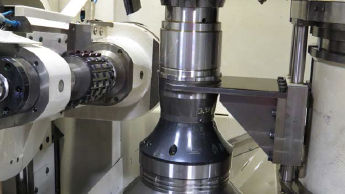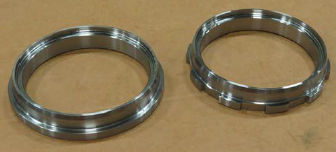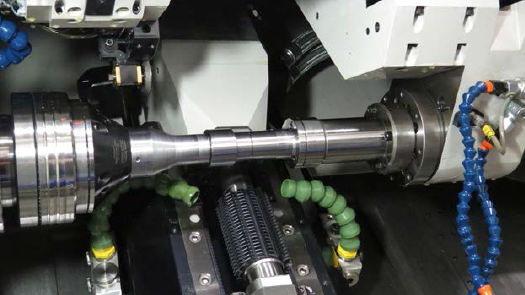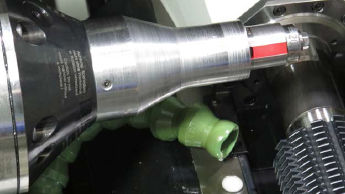Getting in Gear with the Chain of Innovations
‘ Getting in Gear’with the Chain of Innovations
Frank Burke
At the dawn of the Industrial Revolution, so-called mechanics were tasked with devising the precise methods that would make mass production possible. The result was the first generation of machine tools, which in turn required improved tooling and production methods. The demand/response dialectic — known as the “chain of innovation” — remains operative in the present day and has in fact been especially energized by new technologies — even in traditional, mature industries.

Tony Werschky, director of sales and partner at Delta Research (left), and Pete diMascio, director of Gear Technology
In the gear making industry, the leading edge is represented by those shops involved in prototype development. One example is Delta Research Corporation of Livonia, Michigan, active since 1952 in the manufacture of prototype transmissions and gear components for the automotive, aerospace, defense, mining, and other industries. And with the acquisition of its sister company, Delta Gear, the company has combined prototyping with production capabilities and today produces over 1.5 million gears per year.
According to Tony Werschky, director of sales and partner at Delta Research, “Our primary production includes parallel access gears, including spur and helical configurations up to 30 inches; most are actually less than 20 inches. We also make spiral bevel gears up to 20 inches. We now have three facilities totaling 132,000 sq. ft., and as we’ve grown, we’ve realized that in order to achieve the highest quality standards for our customers, we would have to embrace high-precision, automated methods and develop a workforce of highly trained professionals. The fact that we can offer the services and achieve the production we do indicates that it was the right formula.”
Because of the company’s longstanding relationships and experience in the automotive industry, Delta Research recently experienced a “chain of innovation” moment. As Pete DiMascio, director of gear technology at Delta Research, explains:











